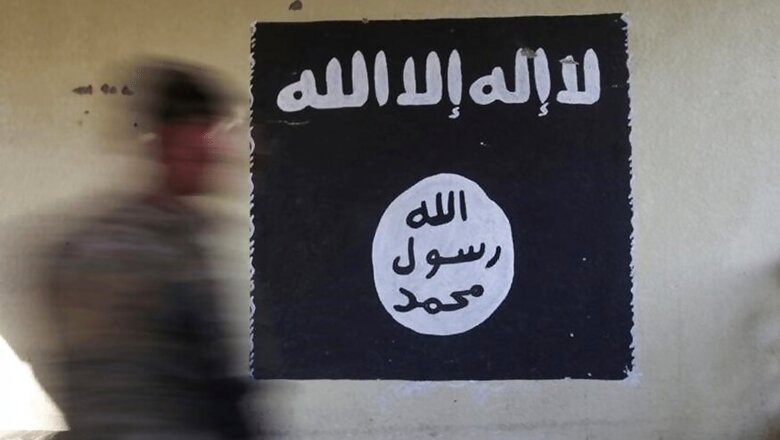
views
New Delhi: Fears are mounting that a surge in narcotics shipments by cartels operating out of Pakistani ports could be linked to sharp escalation in Islamic State operations in the Maldives, intelligence sources have told Network18.
Islamic State cells in the Maldives, known to have close links with Indian Ocean drug cartels, have over the past eight weeks staged multiple attacks, including bomb strikes on police boats and attacks on foreign nationals.
Earlier this month, the Sri Lanka naval ship SLNS Samudra intercepted a dhow carrying 281 kilograms of heroin and 48kg crystal methamphetamine, some 985 kilometres west of Colombo. The operation was launched on the basis of satellite imaging provided by the United Nations Office on Drugs and Crime, which began tracking the dhow soon after it left the Baluchistan coast.
The April 10 seizure, the Sri Lanka Navy said, came on the back of another March 28 seizure — with record-breaking recoveries of 718kg of heroin, 797kg of crystal methamphetamine, 581kg of ketamine and 2,475kg of cannabis in the first three-and-a-half months of the year 2020.
“Law-enforcement agencies across the region are under tremendous pressure enforcing lockdowns and other operations related to the coronavirus pandemic,” a New Delhi-based intelligence official said. “For criminals and terrorists on India’s western ocean rim, this is great news”.
The Islamic State magazine, al-Naba, on Thursday claimed responsibility for a bombing that set five boats —including a police vessel and an ambulance — on fire in Mahibadhoo, a small island-town some 75 kilometres from the capital Mahibadhoo. The magazine said “soldiers of the Caliphate attacked 5 boats belonging to the apostate Maldivian government”.
Maldives Police sources confirmed to Network18 that the attack had been carried out using a simple improvised explosive device. Police had earlier characterised the bombing as “a retaliatory attack for recent investigations into drug trafficking and religious extremism”.
Police sources in Male said they now believe another patrol boat which caught fire in Gan, 258 kilometres from the capital, was also set on fire by Islamic State sympathisers.
Islamic State supporters had, in February, claimed responsibility for stabbing one Australian and two Chinese nationals on Hulhimalé, an island-suburb near Male.
Funding from narcotics operations is long known to have helped jihadists in the Maldives pay for recruits to travel to Afghanistan, Pakistan and Syria. Local criminal cartels have also been closely linked to jihadist activities, supplying the bulk of their cadre.
“The nightmare scenario is that jihadists seize foreigners at a tourist resort on some remote island”, an Indian intelligence official said. “The jihadists in the Maldives have never had the weapons of training to pull off something on that scale—but their links to Pakistani narcotics traffickers operating in the Indian Ocean make such a strike conceivable”.
Fourteen hundred Maldivians, police commissioner Mohamed Hameed said last year, are estimated to be committed to jihadist ideology—“to the point where they would not hesitate to take the life of the person next to them”. According to Hameed, some 423 Maldivians sought to join the Islamic State’s forces in Syria and Iraq, with 173 succeeding in doing so. In addition, Hameed said, hundreds more travelled to Pakistan and Afghanistan.
In population adjusted terms — the Maldives has just 425,000 citizens — this makes the country the highest single provider of foreign fighters to the Islamic State.
Last year, Maldives authorities arrested Muhammad Ameen, named by the Islamic State as a key recruiter for the Islamic State’s Khorasan wing, active in Pakistan and southern Afghanistan — an organisation which also included several Indian nationals.
For years a key figure in Maldives drug cartels, which trans-ship narcotics routed from Pakistan to elsewhere in South Asia and Europe — Ameen discovered jihadism while serving time in prison. According to the United States Treasury Department, he recruited jihadists “from various Maldivian criminal gangs”
Large numbers of other Islamic State and al-Qaeda jihadists from the Maldives first encountered jihadism while serving prison sentences for drug-related crime.
Islamism began to gather force in the Maldives after 2004 after the Indian Ocean tsunami claimed hundreds of lives on the islands, and destroyed entire communities, creating a climate of fear and messianic religious revivalism.
“Preachers began touring the islands, armed with cash from Islamic charities who had arrived from Pakistan and the Middle East,” said writer and analyst Yameen Rasheed, himself later assassinated by jihadists. “Their message was simple: Maldivians were paying for their sins, and must atone to avoid Allah’s wrath.”
Among the key centres for the jihadist movement was a circle around Pakistan-trained cleric Ibrahim Fareed, who, while serving a term of exile on remote Himandhoo island, set up a quasi-independent country modelled on the Taliban regime in Afghanistan.
The pseudo-state was later shut down by authorities but several of its members went on to play key roles in the country’s jihadist movement.
Along with Mohamed Mazeed of Male, as well as Ali Rashid and Mohammad Saleem, both residents of the Kalaidhoo island in the Laam atoll, Fareed’s student Ali Shareef plotted to re-establish a Shariah-based state in the Maldives. In 2009, they bombed Chinese tourists visiting Malé’s Sultan Park—mistaking them to be Japanese, investigators later found.
The Maldives jihadist networks developed transnational links early on. In 2008, Maldives national Ali Assham, alleged to have been involved with the Lashkar-e-Taiba network and accused of attacking the Indian Institute of Science in Bangalore in 2005, was deported from Sri Lanka to Maldives. Despite Indian demands, he was never prosecuted.
Ali Jaleel, who in 2008 became the first Maldives citizen to conduct a suicide bombing, had been imprisoned two years earlier on terrorism-related charges, but was released and allowed to leave for Pakistan. There, he killed himself in an attack on the Inter-Services Intelligence Directorate headquarters in Rawalpindi.
Mohammed Faseehu, from the Laam atoll island of Dhanbidhoo, and Shifahu Abdul Wahid of the Dhiffushi island in the Kaaf atoll, were killed fighting Indian troops in Kashmir in 2007.




















Comments
0 comment